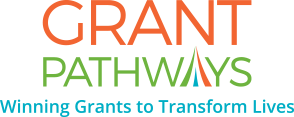Part 1: Steps 1-4 of 8 Steps Toward a More Productive Year of Grant Seeking
Some of us are wired to organize and seek out efficient productivity. Some of us are not, but no judgment here! The good news is that regardless of how easy it is for you to stay organized and have efficient productivity on a daily basis, there are some tried and true steps that will help you stay on track and meet your grant goals. These steps are both personal and professional in nature because these two parts of our lives are inner-twined.
-
Manage your Energy, Not Your Time
No matter what your tole is in the grant seeking process, be sure to get enough sleep, exercise, eat mindfully, meditate, and/or do things you love! These things will help you renew your energy. You can’t make more time, but you can increase your energy!
-
Be Your Own Coach or Find A Trusted Coach
Grant seeking requires motivation and organization because there are a lot of moving parts. Some people just seem to be wired to be organized. If this is you, then you are your own coach – and you can usually keep yourself on track. If you are not a natural ‘organizer’, then own this and find a ‘coach’ to help you. It takes all of our amazing talents and personalities to make this world such a wonderful place, so you cannot excel at everything! There may be a staff member or board member who can be a coach for you and help you stay motivated toward your grant seeking goals. Just don’t make excuses not to have efficient productivity. I have a good friend who knows she needs someone to help her be organized and stay productive. Ironically, she is an amazing motivational speaker! The point is, she knows she needs help, and she seeks it out instead of making excuses for herself.
-
Read About Productivity
Grant seeking also requires regular productivity. If you pause too long with your grant seeking you may pay in lost revenue later because grant seeking is an investment in the future. So how do stay productive when you haven’t had a recent award? Find a blog or a group that regularly discusses productivity and take a few minutes to learn from them every week. I love John Hall’s weekly newsletter on LinkedIn about Mastering Time Management and Productivity. Set aside a scheduled time each week when you will learn from your source of productivity and stick to it. You may only have ten minutes and that is okay, just do it.
-
Set Goals
You may be tired of hearing about goal setting, but if you write grants, you know how important this is. There is a reason you keep hearing about it setting goals -it actually works. Does this mean that you will meet a ll of your goals all the time? You may not, but if you use the SMART goal formula (just as some funders require you to do for grant proposals) you are more likely to be successful.
ll of your goals all the time? You may not, but if you use the SMART goal formula (just as some funders require you to do for grant proposals) you are more likely to be successful.
- Specific – “My nonprofit will increase grant revenue by $5,000 this year” NOT “My nonprofit will increase grant revenue”.
- Measurable – “I will increase my business productivity by tracking my time every day” NOT “I will be more productive”.
- Attainable – “Therapy staff will receive incentives to attend 2 continuing education sessions each quarter” NOT “Therapy staff will receive incentives to obtain their doctorate degrees”.
- Relevant – “All staff will receive safety training in the 1st quarter”, NOT “All staff will learn how to line dance in the 1st quarter” (could be fun – but not very relevant!)
- Time-based – “I will hire 2 new finance staff by the end of the 3rd quarter”, NOT “I will hire 2 new finance staff
No go out there and start grant seeking with efficient productivity and look for Part 2 of this blog in a couple of weeks!
